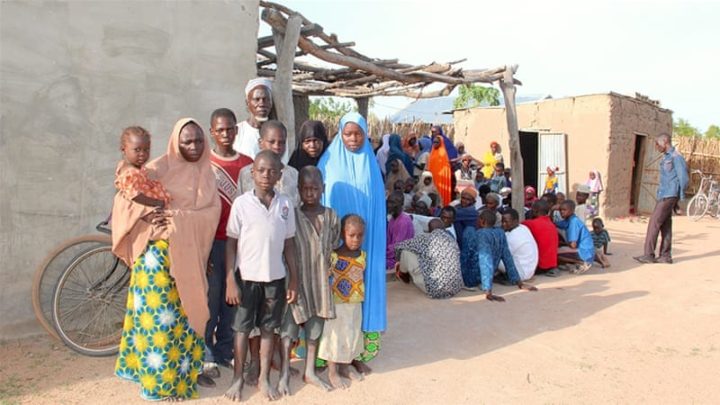A survey carried out by FinMark Trust through the i2i initiative, in partnership with Enhancing Financial Innovation & Access (EFInA) , reveals that some Nigerian households are beginning to experience reduced income, lower food consumption, and reduced access to financial and health services following the onset of the COVID-19 epidemic and related lockdowns.
The FinMark Trust through the i2i initiative and Enhancing Financial Innovation & Access (EFInA) survey was conducted via mobile phones, was commissioned to generate more complete and inclusive data on how the COVID-19 pandemic is impacting lives of Nigerians.
The survey is nationally representative of the Nigerian adult population (18+) as more than 1,800 adults were surveyed between April 8 and 16 via telephone. Similar surveys were also carried out in Kenya and South Africa.
According to the report, the role of financial services in improving livelihoods is particularly important during a crisis. People need access to affordable savings, credit, payments, insurance, and pension solutions to either increase their ability to take advantage of economic opportunities or build resilience against income shocks.
However, Nigerians reported disruptions in access to financial services following lockdowns 11 percent of Nigerian adults reported difficulty remitting through their preferred bank or financial service agent and one in five per cent said their preferred bank or agent was closed or had run out of cash when they were interviewed in mid-April.
Also, nearly one in five adult Nigerians borrowed money in the two weeks prior to April 8. Of these, eight per cent have taken up loans from formal financial service providers, mainly digital lenders. Most Nigerians who reported having taken credit borrowed from family and friends. Informal financial service providers catered to 29 percent of those borrowing, with nearly one-third of informal loans sourced from money lenders.
Without regulatory oversight, borrowing from money lenders can be risky due to potentially high interest rates and the possibility of exposure to aggressive debt collection practices.
Another report by EFInA showed that in Nigeria, Northeast and Southeast regions have the least access to banking, a report on financial access touch-points has shown.
With five per cent financial access touch-points for the Northeast and seven per cent for the Southeast, both regions remain disadvantaged in access to financial services despite efforts by the Central Bank of Nigeria (CBN), Bankers’ Committee and commercial banks to take banking to the grassroots, the Shared Agent Network Expansion Facility (SANEF) report has shown.
Also, about N20 billion was voted for banks, Nigeria Inter-Bank Settlement Systems (NIBSS), licensed Mobile Money Operators and Shared Agents to accelerate financial inclusion and take banking to more Nigerians.
Southwest is leading on financial access touch-points with 54 per cent; Southsouth 12 per cent; Northcentral 11 per cent and Northwest 10 per cent. It said Nigeria has 5,600 bank branches, 17,600 Automated Teller Machines (ATMs); 15,000 Point of Sale terminals and 51,754 Agents as at December last year.
The SANEF initiative involves on-boarding 40 million low income and un-served Nigerians into the financial system, increasing financial access points from the current 50,000 to 500,000 by 2020 and deepening access to mobile and digital financial products and services such as savings accounts, microloans, insurance, pensions by Nigerians.
The report explained that the project seeks to deepen financial inclusion through an integrated ecosystem with strong regulatory oversight, consumer protection and interoperable payment systems with limited concentration risk.
“It will create a platform for Nigerian owned financial services companies to grow, whilst empowering and creating jobs for Nigerians. So, wherever you see the SANEF sign, you can perform basic financial services such as account opening, cash deposits, cash withdrawals, funds transfers and bills payments,” it said .
The project is expected to reduce transaction costs, bring about convenience, create job opportunities, and increased adoption of financial services. The platform is also expected to handle government’s social disbursements initiatives. It will also lead to reduced cash dependency, better tax collections and reduction in crime rates.
SANEF will help the banks achieve 70 million Bank Verification Number (BVN) Bank Accounts by 2020 from about 34 million at present. The Nigeria’s financial inclusion model is similar to Indian model, where over 1.2 billion people gained access to financial services.
The BVN roll-out is aggressive with NIBSS already partnering with Agent Managers appointed by banks, Other Financial Institutions, Mobile Money Operators, Super Agents and other licenced Nigerian companies for remote BVN enrollments. NIBSS will ensure training of Agent/Managers to ensure proper hand-holding as may be required for the BVN enrollment process.
Going forward, financial inclusion stakeholders must work to
rapidly expand use of digital financial services, which can help people process necessary financial transactions to sustain their businesses and households while minimising movement and physical interaction.
By making digital money transfers, governments and others providing financial support to the most vulnerable can reach them more safely and efficiently than by distributing cash. Widespread use of digital financial services can also build financial inclusion and accelerate recovery from economic shock. Widespread deployment of Payment Service Banks holds potential to accelerate financial inclusion, particularly in hard to reach areas.
Leverage financial service agent networks, and support agents in operating safely. As local, trusted members of their communities, agents can help Nigerians access financial services without having to travel to bank branches.
Agents also hold the potential to contribute to crisis response, as trusted partners who can deliver money, supplies or potentially even information within their communities.



